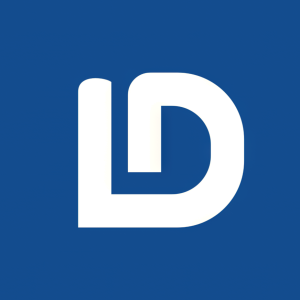Lucid Diagnostics Announces Positive Data from its ESOGUARD BE-1 Prospective, International, Multicenter Clinical Validation Study of EsoGuard® Esophageal Precancer Testing in a Screening Population
Rhea-AI Summary
Lucid Diagnostics announced positive results from its ESOGUARD BE-1 clinical validation study for EsoGuard, a test for detecting esophageal precancer. The study showed an 87.5% sensitivity and a 98.6% negative predictive value (NPV). The study was conducted across multiple international centers, including major U.S. and European institutions. The results support the upcoming Medicare LCD pre-submission and ongoing commercial payor engagements. The study involving 93 subjects confirmed the test's efficiency and safety, potentially making esophageal cancer screening more accessible and effective.
Positive
- EsoGuard demonstrated 87.5% sensitivity and 98.6% NPV in detecting esophageal precancer.
- The study was international and multicenter, including prestigious institutions.
- Data supports Medicare LCD pre-submission and ongoing commercial payor engagements.
- The study confirmed the test's efficiency, safety, and potential to improve esophageal cancer screening.
Negative
- None.
News Market Reaction
On the day this news was published, LUCD declined 1.14%, reflecting a mild negative market reaction.
Data tracked by StockTitan Argus on the day of publication.
Prospective screening study demonstrates excellent EsoGuard sensitivity of
Previously announced positive data from a separate prospective VA screening study also accepted for peer-reviewed publication
Studies further strengthen EsoGuard's clinical validity data in support of upcoming Medicare LCD pre-submission meeting and ongoing commercial payor engagements
The ESOGUARD BE-1 study was led by Nicholas J. Shaheen, M.D., M.P.H., Professor of Medicine and Epidemiology at the University of North Carolina School of Medicine, a leading esophageal precancer expert and lead author of the American College of Gastroenterology (ACG) guidelines on esophageal precancer screening. Study sites included leading academic medical centers, such as Baylor College of Medicine, University of
The manuscript for the
"We are grateful to Dr. Shaheen and his co-investigators for this valuable contribution to the clinical evidence supporting EsoGuard esophageal precancer testing," said Victoria T. Lee, M.D., Lucid's Chief Medical Officer. "This second multi-center clinical validation study in an intended use screening population demonstrates nearly identical EsoGuard performance compared to two previously reported National Cancer Institute (NCI)-funded case-control studies—a multi-center pivotal study published in Science Translational Medicine introducing the technology and a multi-center study from the BETRNet consortium recently published in the American Journal of Gastroenterology. Additionally, the previously announced and now peer-reviewed results of the
Dr. Lee added, "As previously reported, three published clinical utility studies have already documented that physicians consistently utilized EsoGuard results to appropriately triage at-risk patients, which can result in more cost-effective utilization of endoscopy for esophageal precancer detection. These clinical validation and clinical utility data, coupled with multiple national society guidelines and consensus statements supporting non-endoscopic esophageal precancer detection, provides a robust clinical evidence base in support of our upcoming Medicare LCD pre-submission meeting and ongoing commercial payor engagements."
The BE1 manuscript reports EsoGuard performance in 93 subjects who met criteria for esophageal precancer screening based on American College of Gastroenterology (ACG) guidelines (presence of chronic heartburn and at least three of six additional risk factors—age over 50 years, male sex, white race, obesity, smoking and positive family history), underwent EsoCheck cell collection, had binary EsoGuard results, and a definitive final diagnosis established by upper gastrointestinal endoscopy and biopsies. Of these 93 subjects contributing to the primary endpoint analysis, eight had BE without dysplasia, for a disease prevalence of
The authors conclude that "…EsoGuard DNA biomarker testing was well-tolerated, convenient, safe, and efficient…with a PPV and a NPV that can appropriately guide clinical decision-making…Improved accessibility of non-endoscopic, in-office testing could increase BE screening rates, improve early disease detection, and ensure BE patients receive appropriate endoscopic surveillance and treatment to avoid progression to EAC."
About Lucid Diagnostics
Lucid Diagnostics Inc. is a commercial-stage, cancer prevention medical diagnostics company, and subsidiary of PAVmed Inc. (Nasdaq: PAVM). Lucid is focused on the millions of patients with gastroesophageal reflux disease (GERD), also known as chronic heartburn, who are at risk of developing esophageal precancer and cancer. Lucid's EsoGuard® Esophageal DNA Test, performed on samples collected in a brief, noninvasive office procedure with its EsoCheck® Esophageal Cell Collection Device - the first and only commercially available tools designed with the goal of preventing cancer and cancer deaths through widespread, early detection of esophageal precancer in at-risk patients.
For more information, please visit www.luciddx.com and for more information about its parent company PAVmed, please visit www.pavmed.com.
Forward-Looking Statements
This press release includes forward-looking statements that involve risk and uncertainties. Forward-looking statements are any statements that are not historical facts. Such forward-looking statements, which are based upon the current beliefs and expectations of Lucid's management, are subject to risks and uncertainties, which could cause actual results to differ from the forward-looking statements. Risks and uncertainties that may cause such differences include, among other things, volatility in the price of Lucid's common stock; general economic and market conditions; the uncertainties inherent in research and development, including the cost and time required to advance Lucid's products to regulatory submission; whether regulatory authorities will be satisfied with the design of and results from Lucid's clinical and preclinical studies; whether and when Lucid's products are cleared by regulatory authorities; market acceptance of Lucid's products once cleared and commercialized; Lucid's ability to raise additional funding as needed; and other competitive developments. In addition, Lucid continues to monitor the COVID-19 pandemic and the pandemic's impact on Lucid's businesses. These factors are difficult or impossible to predict accurately and many of them are beyond Lucid's control. In addition, new risks and uncertainties may arise from time to time and are difficult to predict. For a further list and description of these and other important risks and uncertainties that may affect Lucid's future operations, see Part I, Item 1A, "Risk Factors," in Lucid's most recent Annual Report on Form 10-K filed with the Securities and Exchange Commission, as the same may be updated in Part II, Item 1A, "Risk Factors" in any Quarterly Report on Form 10-Q filed by Lucid Diagnostics after its most recent Annual Report. Lucid disclaims any intention or obligation to publicly update or revise any forward-looking statement to reflect any change in its expectations or in events, conditions, or circumstances on which those expectations may be based, or that may affect the likelihood that actual results will differ from those contained in the forward-looking statements.
![]() View original content to download multimedia:https://www.prnewswire.com/news-releases/lucid-diagnostics-announces-positive-data-from-its-esoguard-be-1-prospective-international-multicenter-clinical-validation-study-of-esoguard-esophageal-precancer-testing-in-a-screening-population-302187721.html
View original content to download multimedia:https://www.prnewswire.com/news-releases/lucid-diagnostics-announces-positive-data-from-its-esoguard-be-1-prospective-international-multicenter-clinical-validation-study-of-esoguard-esophageal-precancer-testing-in-a-screening-population-302187721.html
SOURCE Lucid Diagnostics








